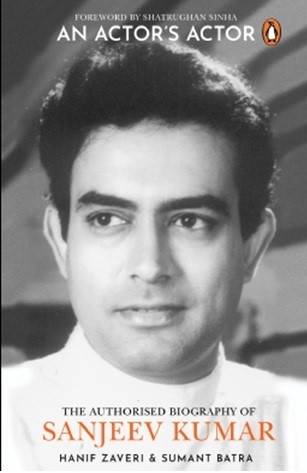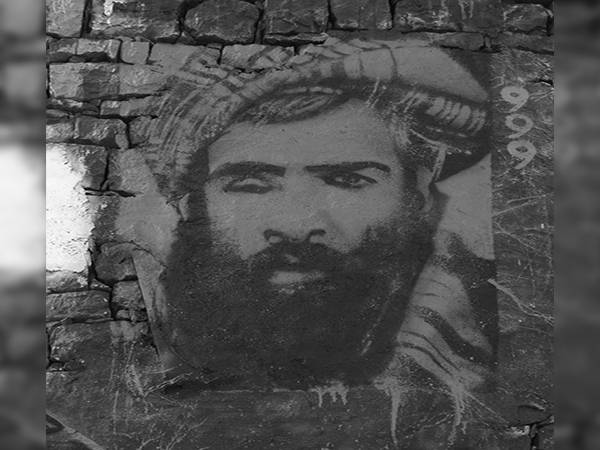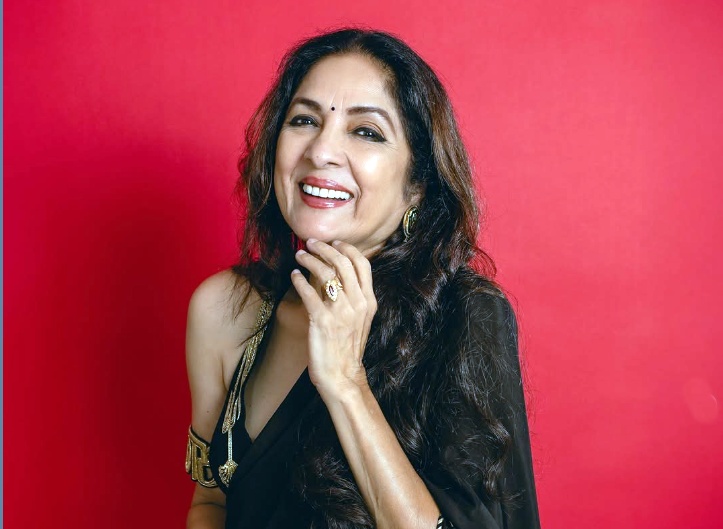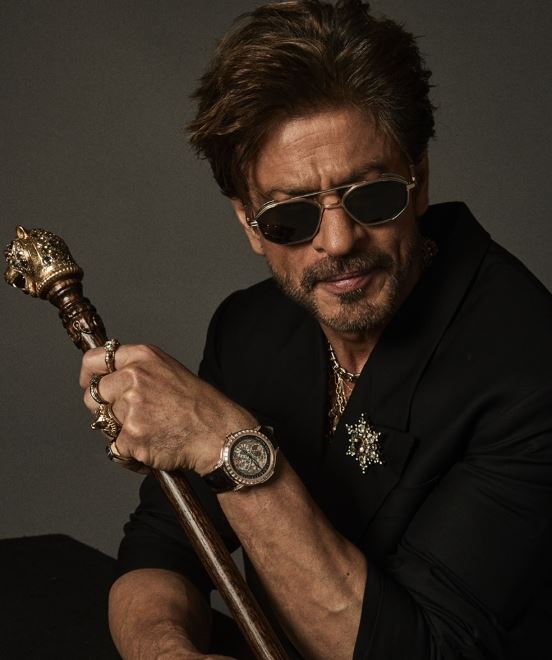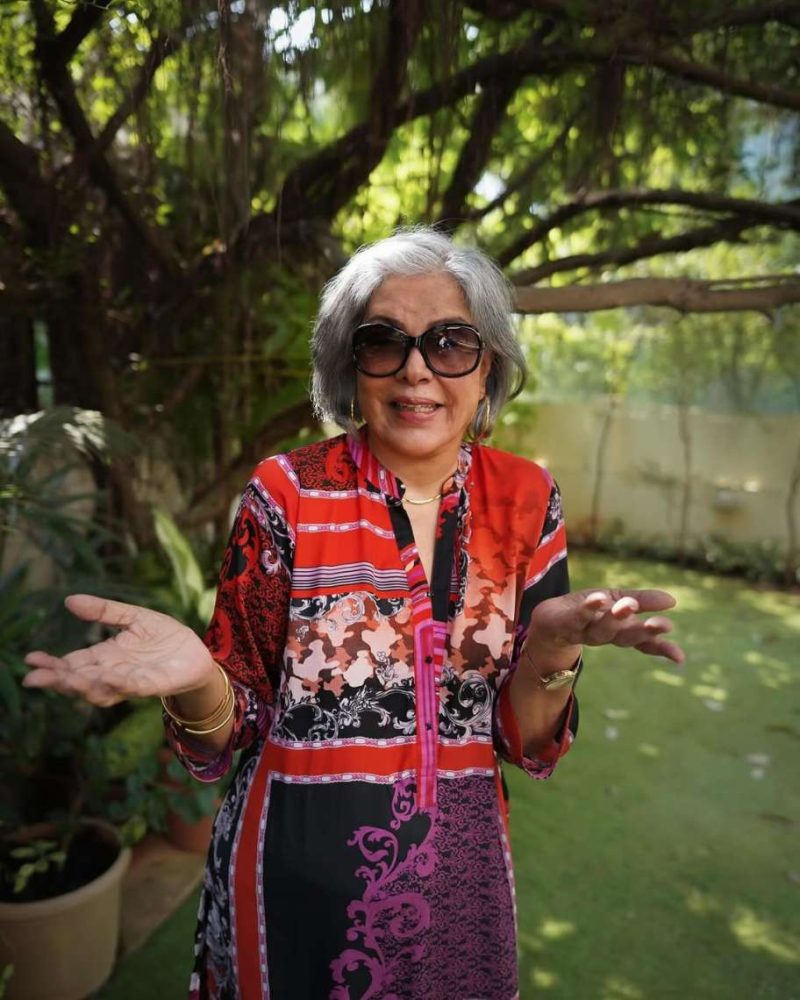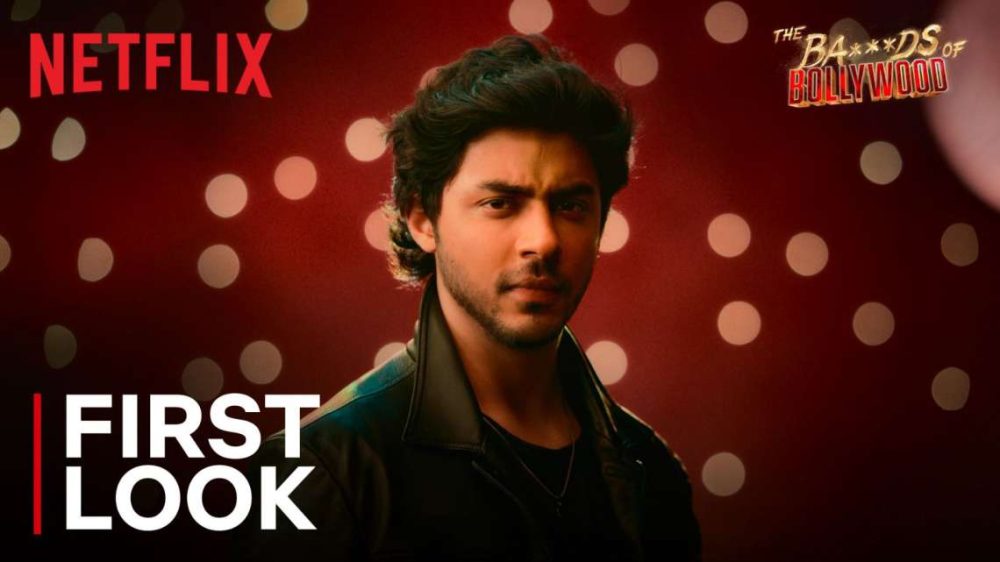After starting out in B-films in the 1960s, he caught the eye in “Sungharsh” (1967), where the manner in which he held his own against Dilip Kumar is now the stuff of Hindi film folklore…writes Makhijani
They hail from diverse backgrounds. Mumbai-based Hanif Zaveri is an author, journalist, actor and playwright. New Delhi-based Sumant Batra is one of India’s leading insolvency lawyers, rated amongst the top 100 globally — and a film buff. The meeting of their minds has resulted in “An Actor’s Actor” (Penguin/Ebury Press), the first authorised and authoritative biography of the personal and professional life of Sanjeev Kumar, an actor who remains a role model even 35-years after his death.
Born Harihar Jethalal Jariwala in Surat on July 9, 1938, the book takes off from his family’s traditional ‘zariwala’ business, his struggles in the Hindi film industry where he underwent a “celluloid metamorphosis and was known to the worlds as Sanjeev Kumar”, his romantic involvement with some of Hindi cinema’s biggest names, his lifelong battle with loneliness and his glittering achievements on screen that won him several accolades, including two National Awards for “Dastak” and “Koshish”.
“Sanjeev Kumar was in a league of his own, one of cinema’s most prolific stars, one of its finest actors. All he cared about was the integrity of his performance and the intensity of his role. The body of work that Sanjeev Kumar left behind remains a treat to watch,” Batra told IANS in an interview.
“Even over thirty years after his death he remains among the most mimicked actors of all time. His style informs the works of many actors who came after him. Indeed, he remains the gold standard when it comes to the art and craft of acting. He remains an actor’s actor in the truest sense of the phrase. Sanjeev Kumar was a complete actor,” Batra added.
And what an oeuvre he has left behind!
Sanjeev Kumar could light up the screen in underpants, paunch showing, in one of Hindi cinema’s most lovable song sequences, “Thande thande paani se nahana chahiye” (“Pati Patni Aur Woh”, 1977). Entirely unselfconscious of his image as a star, he would often be cast as the father figure to a number of his contemporaries, most famously Sharmila Tagore in “Mausam” (1975) and Amitabh Bachchan in “Trishul” (1978), or as the elderly Thakur in “Sholay” (1975) — not forgetting the indolent Mirza Sajid Ali in “Shatranj ke Khiladi” (1977), the only Hindi film directed by Satyajit Ray — and yet leave an indelible mark with his presence and his acting prowess.
After starting out in B-films in the 1960s, he caught the eye in “Sungharsh” (1967), where the manner in which he held his own against Dilip Kumar is now the stuff of Hindi film folklore. Equally adept at comedy (“Angoor” and “Manchali”, for example) and dramatic serious roles (“Anubhav” and “Koshish”), he was truly an actor’s actor.
Through all this, he remained down to earth.
“Sanjeev Kumar was shy and an introvert. He had no greed for publicity. In his entire film career, he never kept a personal public relations officer, which most of his contemporaries appointed. His sartorial sense was also in keeping with his down-to-earth lifestyle. No costly, fashionable suits for him. He was a simple person who was most comfortable in a kurta pyjama or in a silk kurta and lungi with simple slippers. Whenever in stress, he smoked but never discussed his feelings with anyone,” Zaveri said during the interview.
Zaveri also revealed a lesser-known facet of Sanjeev Kumar’s personality, quoting from a previous interview with the actor.
“I wanted to be like other actors who played romantic roles and sang songs, running around trees. But working on stage changed my concept and helped me a lot, and I found myself improving. I learnt that an actor has to justify the given character. I got confidence after working on stage.
“Whenever I watch an English movie, I always think what I can do to make it better. I always watch films from the actor’s point of view, trying to find something new in the role. Sometimes I practise particular characters in front of the mirror to improve myself. I advise newcomers to do stage,” Sanjeev Kumar had said during the interview.
Considerable research has gone into the book, which is based mainly on information resulting from extensive interviews held with the family members of Sanjeev Kumar, his co-actors, filmmakers and other artists. As a freelance film journalist, Zaveri had also interviewed Sanjeev Kumar a few times.
“Of course, we had to carefully corroborate and verify the information provided by the interviewees from other sources as Sanjeev Kumar had passed away over three decades ago when the interviews were conducted. Memories had faded and people were at times unsure. We had to undertake extensive research to ascertain the veracity of the facts and where possible, other information. The researchers at (Batra’s) Indian Cinema Heritage Foundation worked hard to dig out as much material as they could from the Foundation’s archive,” Zaveri explained.
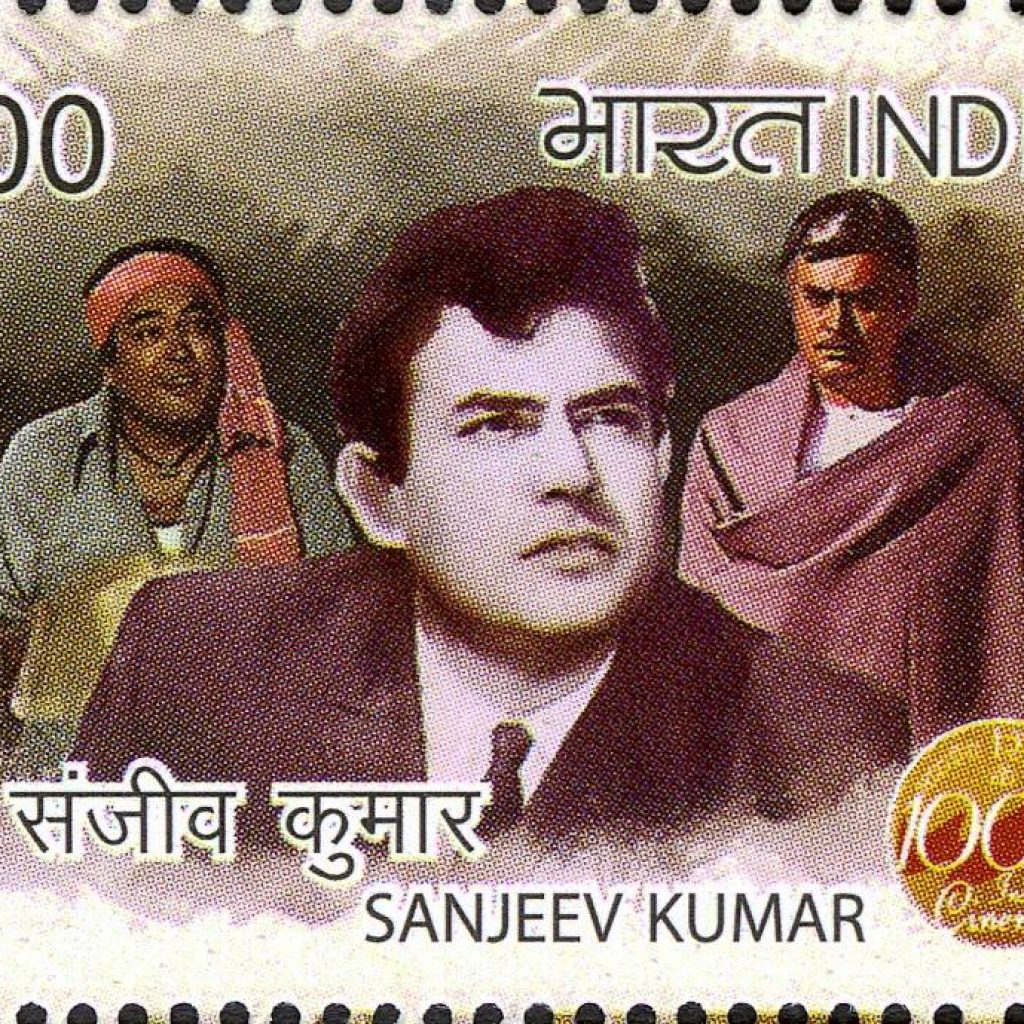
Given their diverse backgrounds, how did Zaveri and Batra come together to collaborate on the biography?
“Hanif Bhai had just finished extensive rounds of interviews with the family members of Sanjeev Kumar and other persons associated with the late actor when we were introduced by a common friend. As the founder of the Indian Cinema Heritage Foundation, which is documenting the history of Indian cinema, I have deep interest in cinema. I am also a die-hard fan of Sanjeev Kumar,” Batra said.
“I therefore, enthusiastically volunteered to write the book. We sat together over many following months to decide the structure of the book and its narration. I am based in Delhi and Hanif Bhai is in Mumbai. I met him whenever I travelled to Mumbai for my professional work, which was in fact, quite frequently. Hanif Bhai had gathered extensive notes from the interviews. Selecting relevant information was the most time-consuming task.
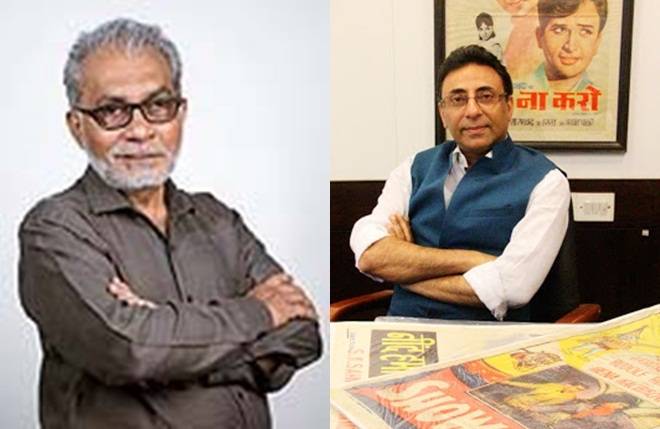
“Then started the actual writing of the book, stitching pieces of information together to tell the story of his personal and professional journey. Unfortunately, the completion of the book got delayed due to the two lockdowns. But for this disruption, the book would have been out last year,” Batra elaborated.
What next? What’s their next project?
“We’re both discussing another book together. It is a bit early to reveal any details,” Zaveri said.
“I am working on a historical fiction which should come out next year if all goes as per plan,” Batra said.
With a foreword by Shatrughan Sinha, “An Actor’s Actor” is truly a succinct introduction to the life and films of a star who tragically left this world at the young age of 47 on November 6, 1985 but who continues to live through his unforgettable and remarkable contribution to Hindi cinema.


